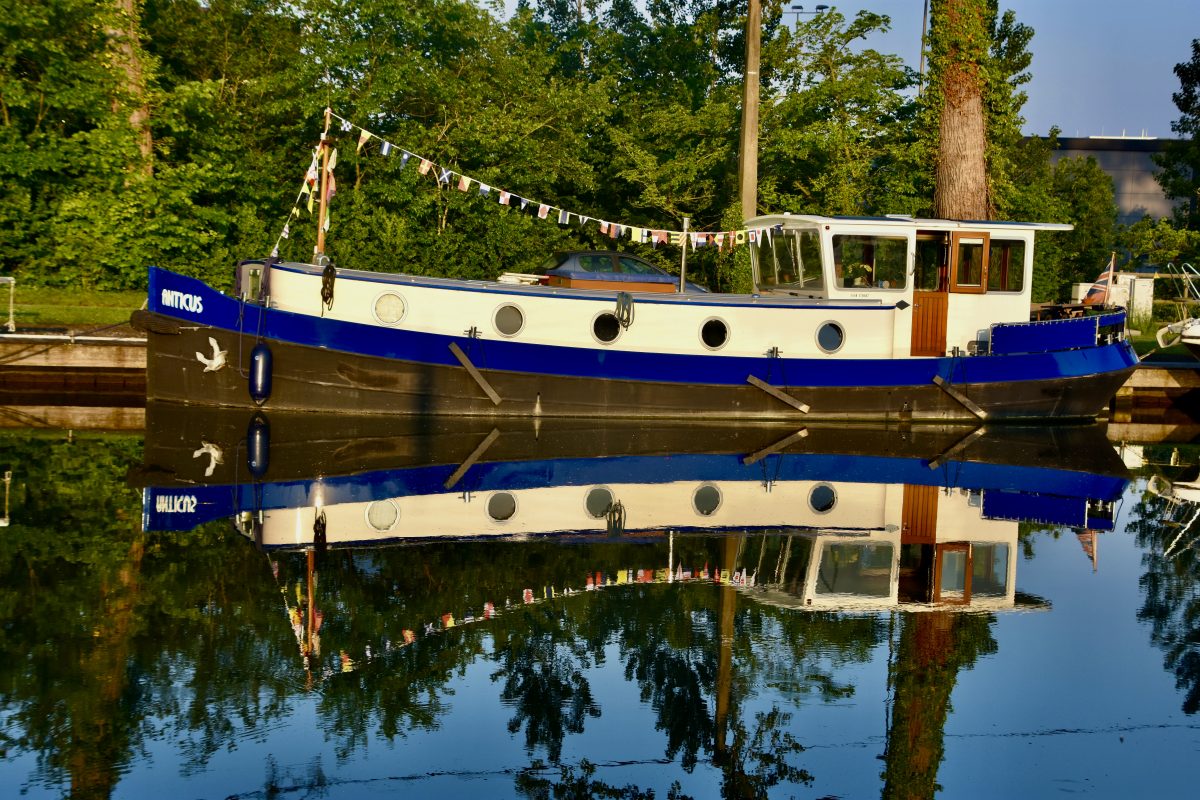As I am sat here with Alfie the Border Terrier counting the days until Nicola returns from the UK I was wondering how to fill a blog post without actually cruising. I spent most of yesterday cleaning lines (ropes), gunging off the decks (cleaning the floors), and generally getting the boat (not ship) shipshape (not boatshape) and Bristol fashion.
So the idea was born, the start of an occasional series on the origins and meanings go nautical terms commonly used in everyday language – Jackspeak as it is called in boating circles!
So ‘when is a boat a ship’ or indeed ‘is a ship a boat’? Well, an easy one to start with – a boat will fit on a ship but a ship is too big to fit on a boat. Oh! and just for clarity, a submarine is a boat, not a ship (even though it’s a submersible)!
As you can see all is becoming beautiful in its simplicity and unarguable in its logic. Read on if you dare.
Ropes being lines came to my attention when I joined the Fire Service which is steeped in the traditions of the Royal Navy, from where many of the old-timers were recruited and many of our methods of drill (practice) were developed.
Let’s start at the end – or more properly – the Bitter End. I’m sure we have all heard a phrase such as “the boxer fought to the bitter end” and we all know what that means. However did you know the “bitter end” is a term derived from the sea, and refers to the end of the anchor rope or chain nearest the ship or boat to which it is fixed often around bollards known as ‘bitts’. When all the rope or chain is let out and you are literally at your ‘ropes end’ it is said to be at the bitter end.

I mentioned early the phrase ‘shipshape and Bristol Fashion’ which has come to mean everything is in good order. The phrase seems to originate from the 17th century where one of the original manuals of seamanship produce by Sir Henry Mainwairing (1587-1653) refers to items being stowed away correctly in a ship shapely manner ie. in its proper place. Bristol Fashion came along a little later, when Liverpool and Bristol were vying for the prestigious title of being the foremost Atlantic port. It was apparent to some that Liverpool was a little more artisan and rough and ready as a port, and Bristol perhaps a little more pleasant and orderly. Hence the phrase Bristol Fashion came to mean being of a standard to pass muster in Bristol.
Whilst we are here ‘pass muster’ which means to reach an expected standard, is also nautical in origin. The ships watch (duty crew) used to parade on deck at the start of their duties and were inspected by their Officers, if all was in order then they had ‘passed muster’. Still to this day in the fire service, the on duty ‘watch’ muster ‘on deck’ at the start of shift for allocation of duties and inspection.

And so ends the first few definitions of Jackspeak the language of the Jack – or the Jolly Jack-Tar – the nickname of the old seafarers from the days of wooden ships (and boats). More salty-sea definitions for you landlubbers (non-sailors) in the days and weeks ahead !


Brilliant!
LikeLiked by 1 person
I enjoyed that post (& all the previous ones). I learnt lots 👍🏼
Thank you for sharing your adventures.
LikeLiked by 1 person
Thank you so much Anne
LikeLike
Always enjoy your blogs and this one is no exception. Actually learned a few things (though, of course, Paul had already made sure I knew a submarine is always referred to as a boat!).
LikeLiked by 1 person
Thank you Judith, good to hear from you. More of this nonsense coming up !
LikeLike